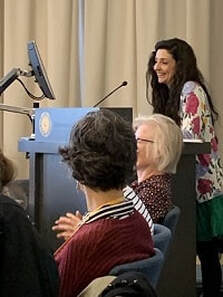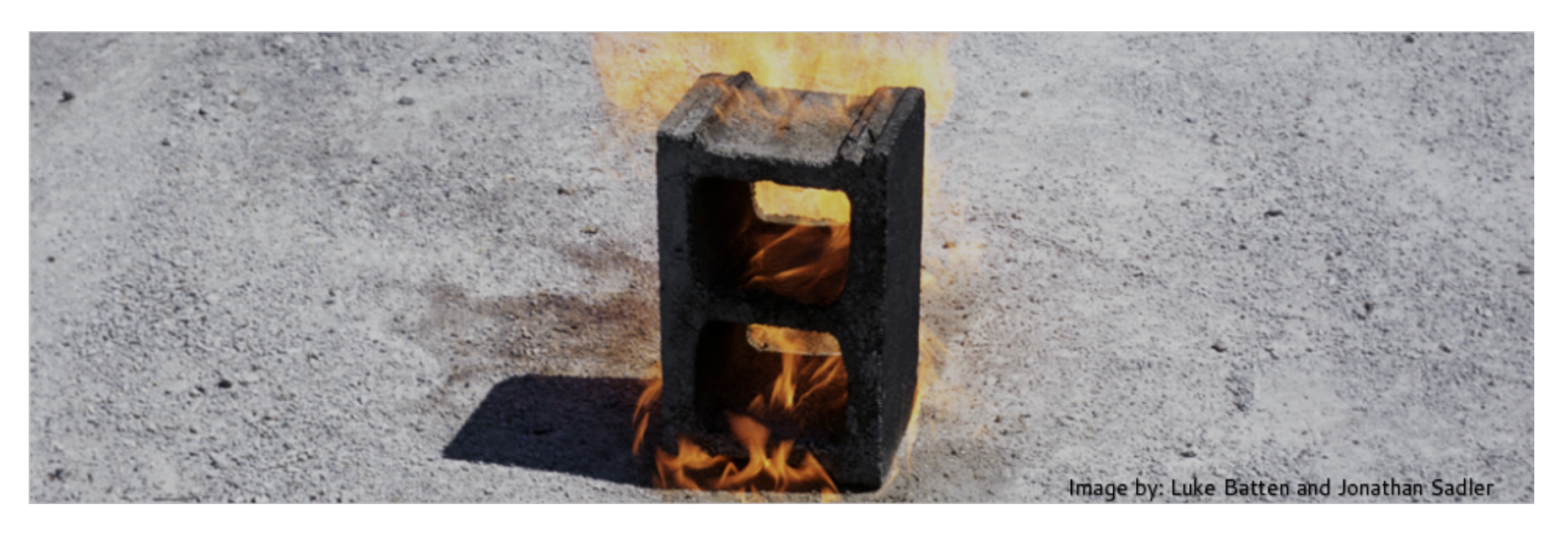
In September 2019, I had the good fortune to present for the second time at
Mnemonics: Network for Memory Studies, a collaborative initiative for graduate education in memory studies. Each year, a partner institution hosts this three-day summer school around a pressing theme in cultural memory studies. Utrecht University hosted the 2019 summer school. This year’s program generated lively discussions pertaining to the theme of
“Memory and Activism.” Previously, I participated in the
Mnemonics summer school held on our Urbana-Champaign campus. The theme for that 2016 session was
“The Other Side of Memory: Forgetting, Denial, Repression.”The Initiative in Holocaust, Genocide, and Memory Studies
(HGMS) at the University of Illinois, Urbana-Champaign (UIUC) is a partner institution of
Mnemonics. Before departing to Utrecht, Professor Brett Kaplan (Director of HGMS) asked me if I would be interested in writing a blog post about my experience. In preparation to do just that, I took several pages of notes in my sketchbook during the summer school. However, when I sat down to write this blog post, I realized that my tidy notes organized in blue, green, purple, and brown ink do not capture what my participation in
Mnemonics means to me.
As I did in a
previous blog post for HGMS, I will illustrate the importance of an academic event by situating it in a larger context. By telling a brief story, I hope to elucidate what
Mnemonics, an exemplary interactive forum in which junior and senior memory scholars meet, has meant for me and what I trust the venue can mean for other graduate students. That is,
Mnemonics has played a central role in my journey to finding my intellectual home in the US academy. To explain what I mean by “finding my intellectual home,” though, I need to return to my undergraduate years, when I pursued a bachelor's degree in English and Art.
No institution of higher education in Utah has an Armenian studies program. Still, at Westminster College, faculty supported me as I tried to figure out the aims of Armenian studies, what its scope had been historically, the current state of the field, and what I envisioned for the field. To that end, Professor Katherine Evans gave me a 2005
PMLA article written by Shari Huhndorf (Yup'ik) and titled “Literature and the Politics of Native American Studies.” Huhndorf recaps the proceedings of a panel titled “American (Indian) Studies: Can the ASA Be an Intellectual Home?” from the 2002 meeting of the American Studies Association. In that panel, Robert Warrior (Osage), Philip Deloria (Dakota descent), and Jean O’Brien (White Earth Ojibwe) addressed the relation of Native American studies to American studies at large. The point of course was not for me to equate the aims and trajectory of Native American studies with that of Armenian studies. Rather, Professor Evans showed me that in my own way, I was asking: where is my intellectual home in academia?
And so I learned to listen: to listen for how we in Armenian studies posed questions for inquiry; to listen for models of interdisciplinary research; to listen for how we defined, applied, and carried forward cultural and critical theory; to listen for how we could bring the conversations at kitchen tables into our academic lives and vice versa; and to listen for the ways in which Armenian studies already was but could also better be in conversation with other area studies. I suppose “listen” is a misnomer as I was, rather, reading anything I could access through library systems.
To capture this notion of listening in my senior thesis, I titled the methodology section “At the Kitchen Table.” I decided on that title after reading a text Professor Evans taught in class: Abenaki historian Lisa Brook’s afterword to
American Indian Literary Nationalism. I did cite critical theory in my thesis on Micheline Aharonian Marcom’s
Three Apples Fell from Heaven. But the phrase “At the kitchen table” allowed me to acknowledge that my work was not done, that I was still finding my intellectual home, that the observations I made about my family’s multilingual, multinational diasporic Armenian experience (like so many others I knew) could be the springboard for scholarly, well-argued, and meaningful contributions to various disciplines and area studies with which my projects engaged, and that while I did not yet fully know how to make all of that visible and legible in academia, I was learning to listen before speaking.
This background leads me to understand
Mnemonics as more than the usual components of a conference. That is, the
Mnemonics summer school is structured so that we graduate students have a space to listen. True, graduate students present fifteen-minute long papers. The 2019 call for papers invited applicants to refine conceptual and methodological tools through three axes of inquiry. The first concerned
memory activism, or how people work together to shape memory culture as a contribution to present-day politics. The second concerned the memory of activism, or how acts of civil resistance are culturally remembered. The final axis concerned
memory in activism, or how memory informs civil resistance in the present. Presenters and audience members soon realized that in taking up one line of inquiry, we were often addressing the intersection of all three points. Indeed, the organization of the panels meant that if we did not address all three axes in our individual presentations, we certainly did so collectively.
Additionally, each panel has a senior scholar in the field of cultural studies serve as a respondent. I will take one for the team and admit that sharing work in progress is often intimidating. But, rest assured! Each respondent at
Mnemonics reads the papers on a panel in advance and leads the question and answer session by highlighting the ways in which the presentations are in conversation. Respondents also provide thoughtful questions, both for individual presenters and for the panel as a whole. It is my sense that respondents actively participate because at the end of the day,
Mnemonics is an environment that fosters graduate student learning, international academic community building, and the belief that a panel participant will become a member of the academia and practice that model of collaboration evinced during the summer school.
Mnemonics also features keynote speakers. At Utrecht University, we heard from Lorenzo Zamponi (Scuola Normale Superiore, Florence) who presented “Memory in Action: Reflections on the Role of the Past in Social Movements.” We also heard from Wulf Kansteiner (Aarhus University) who presented “Memory, Right-Wing Politics, and the European Election of 2019.” This year’s program also saw the European launch of
Women Mobilizing Memory (a thought-provoking and timely edited collection of essays). Two of the book editors, Marianne Hirsch (Columbia University) and Ayşe Gül Altınay (Sabancı University), gave a talk titled “Women Mobilising Memory: Stories of Feminist Co-Resistance.” (Videos of the keynotes available
here).
On the final day of the summer school in Utrecht, participants formed small discussion groups. Presenters, keynote lecturers, panel chairs, and panel respondents reflected on recurring themes that arose and what questions remained unanswered. We then asked the deceptively straightforward question: What do we do next in the field of cultural memory studies? We generated a list of topics in response. It will be exciting to see how future
Mnemonics organizing committees take up these avenues for inquiry.
And, yes, conversations take place at tables beyond those found in the conference room. The
Mnemonics summer school hosts a dinner for participants. Throughout the three days, you and your colleagues will likely also find yourselves at cafes. The conversation might be about recommendations for readings, it might be about the differences and similarities between your graduate school programs, it might be about a question that your presentation prompted, or it might not be academic at all.
What I have most appreciated about summer school experiences is that both times,
Mnemonics reminded me to value my admissions in that methodology section of my thesis so many years ago. To put it differently,
Mnemonics encourages you to see that as a graduate student on your own path to finding your own intellectual home in the academy, you do not have to have all the answers. Think your work concerns memory but maybe you have not had exposure to the theoretical tools necessary to frame your inquiries and answer them? Hear the phrase “interdisciplinary research” often but could benefit from seeing what that entails as a praxis?
Mnemonics is structured to welcome and be responsive to these different ways of not knowing. Curious about what methodologies are employed by others interested in the same topics or themes in memory studies as you?
Mnemonics is designed to bring different research frameworks in conversation and have participants reflect on those very methodologies.
In 2020, Mnemonics will head to Aarhaus, where the theme will be “Memory and Migration.” To graduate students reading this post, I hope you will have the opportunity to present at that session or a future one. While there, remember to practice listening. One day, a colleague’s or a student's research trajectory might prompt you to recall how
Mnemonics helped you on your own journey to finding your place in academia. While you attend
Mnemonics, then, don’t just listen for the purpose of your own research. Also listen so that you can pay it forward and model the collaborative learning you will have witnessed as a
Mnemonics participant.
Helen Makhdoumian is a PhD candidate in English and an HGMS student. At UIUC, she is also completing a graduate minor in American Indian Studies and a graduate certificate through the Unit for Criticism and Interpretive Theory. Her dissertation is tentatively titled “A Map of This Place: Resurgence and Remembering Removal in Armenian, Palestinian, and American Indian/First Nations Literatures.”

